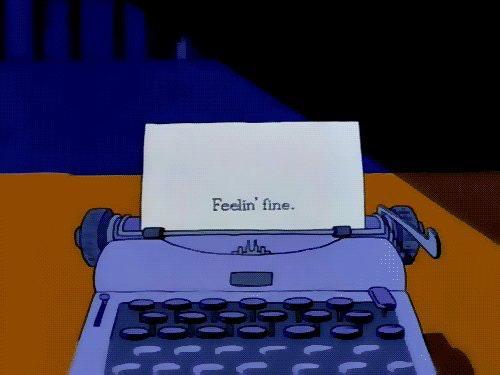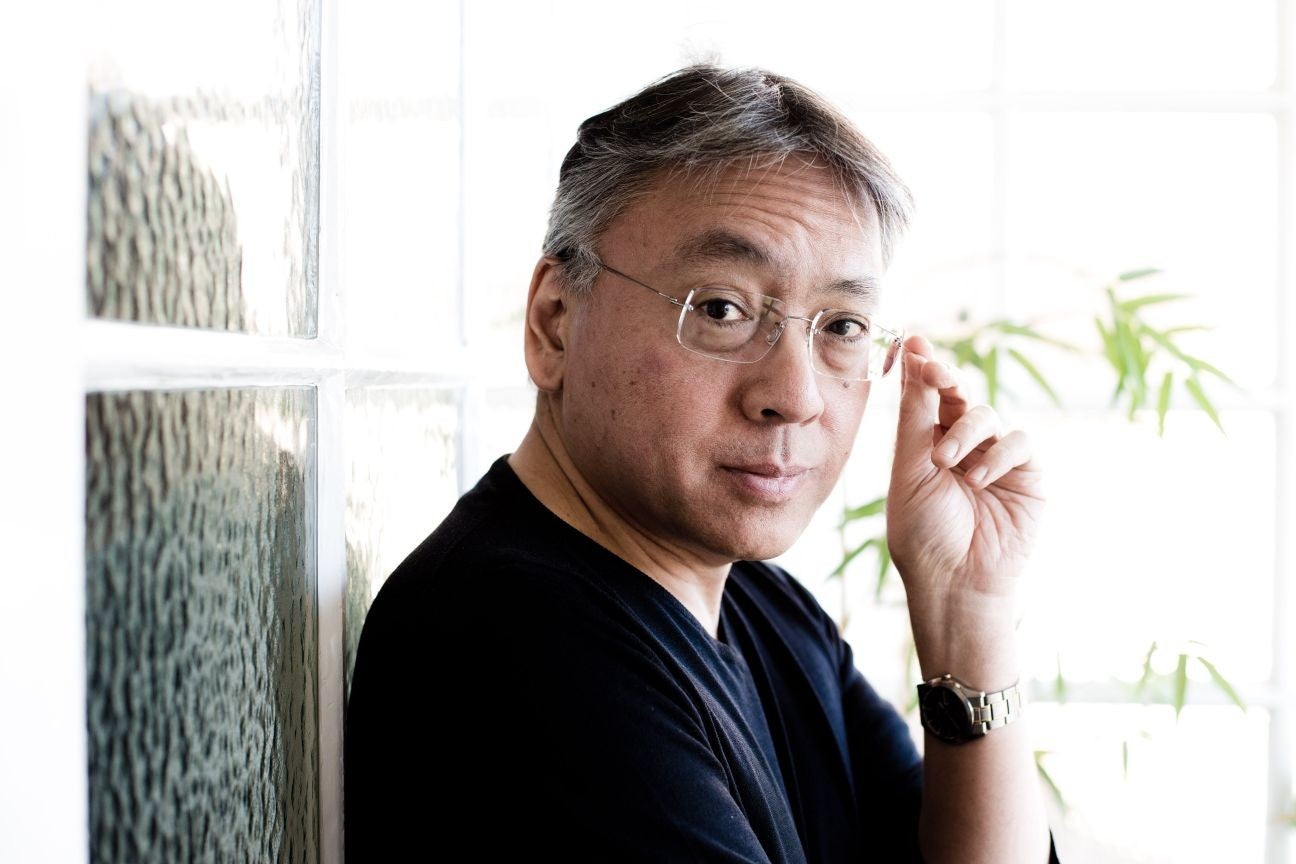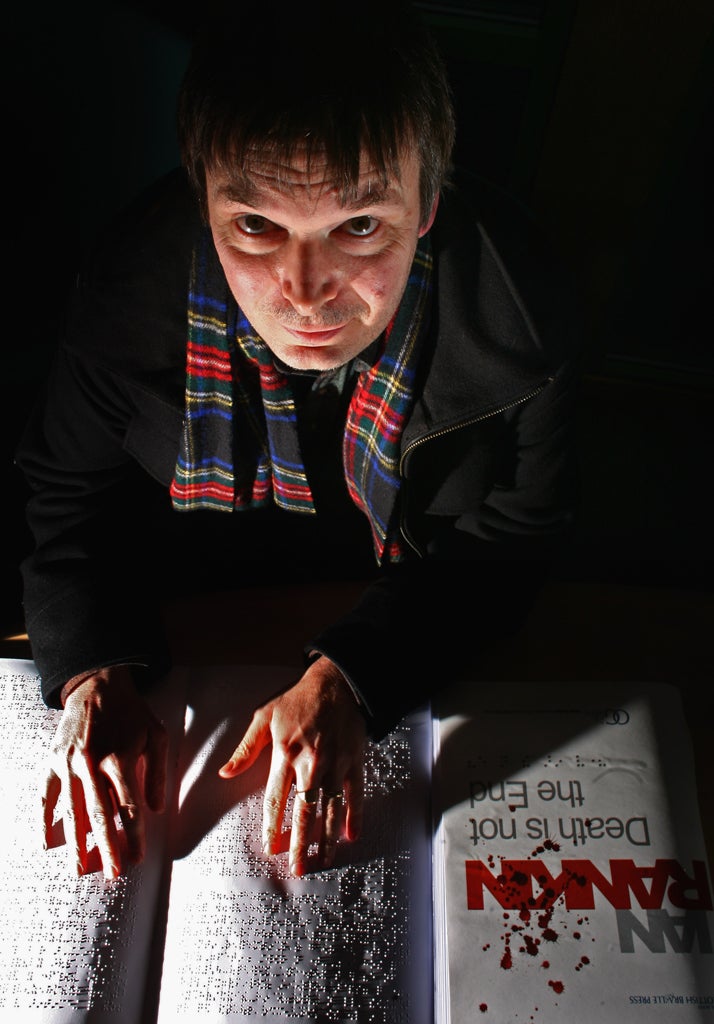The secret of how to write a bestseller
The one thing that stops people being good writers is the myth that there is such a thing as good writing, says Andy Martin. The point of the creative writing course is to get you over the delusion

“There’s no way you can teach this stuff,” he said. “It just cannot be taught. You’ve either got it or not.” Which was ironic, considering that the “he” in this case was a well-known poet/novelist and the “stuff” (meant in a good way) he was supposed to be “tutoring” was how to become a well-known poet/novelist. This was a few years ago, maybe he’s changed his tune now, I’m not sure, I’ll ask him if I see him. But the fact is creative writing is now big business right around the world.
There is a new University of Cambridge Centre for Creative Writing opening this month. Further afield, in the US, setting aside the best known creative writing MFA in the country in Iowa, keep on going west and south to Todos Santos, in Mexico’s Baja California peninsula, which will be hosting a workshop in February, at the “Casa Dracula”. A friend told me about one she had been to on a Greek island, although she admitted that consisted mostly of “singing and shagging Greek waiters”.
The question is, was the poet cited above right? Is it all pointless? Is everyone throwing their money down the plughole? Some might say so. I was once sitting in the offices of Working Title, then based in Oxford Street. Strangely enough they were pitching an idea to me. They wanted me to write a film script. Which I wasn’t sure I really wanted to do, or was even capable of doing. “I haven’t done any of those fancy screenplay seminars, you know McKee or whoever.” “That’s a relief,” says Eric Felner. “Look, you see that guy out there.” He pointed through the window at a passing nobody on the far side of Oxford Street. “He’s just as likely to write a good script as you or anyone else.” They had what he called a “casino mentality”. Which I think amounts to saying “nobody knows anything” (as William Goldman suggested).
In contrast, Midge Gillies, who has not only written a number of biographies but also books on how to write biographies, says that, “I’m loath to say that creative writing is the new religion – but I feel that it is.” The Cambridge Centre for Creative Writing, based at Madingley Hall, is designed to be like the Norwich Writers’ Centre – temples or shrines where the faithful come to seek visions and inspiration, as well as practical qualifications.
But is there a secret to the business of writing? One that can only be revealed through a creative writing course? I think there is. Let’s be clear though, nothing is guaranteed. Everything is done on a wing and a prayer. Falling flat on your face is normal. But the fact is I’ve been lucky enough to listen to a lot of great writers holding forth over the ages, and even watched one or two actually write rather than just talk about it, and the fact is every single one of them has inspired me one way or another. For good or ill. Forget the idea of writing as a solo act. It isn’t. It’s all about joining in a conversation. Or perhaps prayer.

So what is it that writers know exactly? There are certain writers who seem to have read everything. Which can be irritating. I remember George Steiner saying that he had read all the major works in the western canon, in all the original languages, twice. Saul Bellow (Herzog, Humboldt’s Gift) is a bit like that. I think he started off in social sciences and ended up full-time novelist, and taught writing (Chicago and Boston) before winning a Nobel in 1976. Just as Stendahl said that he would read the Napoleonic “Code civil” before getting down to work, so Martin Amis used to say that he would get in the right frame of mind by reading a Bellow. Umberto Eco, erudite author of The Name of the Rose and a professor of semiotics at Bologna, was so knowledgeable someone once asked him if knowing so much didn’t get in the way of writing, to which he replied “Even a gynaecologist can fall in love.”
But the reality is that the creative writing course is less about “The Knowledge” (something London taxi drivers have – or had) than passion. The creative writing course looks at first glance as if it’s going to be about reverse engineering. How do things work? Deconstruct then reconstruct. Bake Off but with words. I’ve attended one of the workshops in Norman Mailer’s name in a far-flung part of the US. There was a lot to do with technique. But the talk is never reducible to the naming of parts (which is really the realm of rhetoric). I once bumped into Mailer in a pub in London and told him how I was a great fan of his work and cited a few of my favourite titles, but he really only wanted to talk about Marilyn Monroe and Muhammad Ali (and Brigitte Bardot, more surprisingly), because he had idolised them, been seduced by them, and identified with them. He didn’t really care how much you knew, it was more about how intensely you could feel.
Rather like rock stars, writers increasingly make a living out of live gigs, not just the recordings. Which reflects something of a shift in the zeitgeist. As Ian Rankin said, “You become a writer because you’re a shy, nerdy fantasist, and then you do well and suddenly you have to become this suave, gregarious after-dinner speaker.” Rankin, creator of Rebus, the rebellious, world-weary yet unstoppable Edinburgh detective, was teaching a course not long ago at the University of East Anglia. Their creative writing course is probably the most established in UK, and can boast alumni such as Kazuo Ishiguro, author of Remains of the Day, who won this year’s Nobel prize for literature.

But Rankin was teaching on the dedicated Crime Fiction course, presided over by Henry Sutton, author of My Criminal World and Time To Win. Crime fiction has been the biggest growth area in the realm of creative writing. The way the two-year course works is to dedicate one year to theory and one to practice. So you end up writing a novel for your MA or PhD.
I think Rankin provides a more relevant role model than successful academic writers such as Bellow and Eco. He is now professor of something, but is actually a failed academic, which has served him well. He started a PhD at Edinburgh University but dropped out when he realised he was better at writing novels than what he was supposed to be doing. Somewhere in his garage is a shoe box containing an unfinished thesis on Muriel Spark that he will come back to the day he runs out of Rebus stories.
There is one successful crime writer in England I can think of whose first novel was rejected by a dozen publishers. One of the more personal rejection letters, striking a positive note, said: “I really like your work. Don’t give up!” So he signed up for the course at the City University in London and now he is writing a book a year and selling loads.
I once taught a short course for Arvon at a phone-free retreat in Devon. Students wanted to know what the rules of great writing were. My fellow tutor and I gave very serious consideration to the rules that writers have come up with over the ages. We looked at Elmore Leonard’s “Ten Rules of Good Writing”. Never start with the weather, for example. Of course! And yet… sometimes you really just want to talk about the weather. Maybe it really was a dark and stormy night. And what if it’s a meteorological novel? Or never use an adverb. But Elmore, “never” is an adverb! (And yes, I happen to feel like using an exclamation mark there, another thing he advises against). Or what about Percy Lubbock’s classic how-to manual, The Craft of Fiction? His big thing was “Show, don’t tell”. OK, good advice Percy, but in fact sometimes you just want to tell and not show. And anyway isn’t “showing” just “telling” with a different name?

Closely examined all those great rules tend to fall apart. Doesn’t mean they aren’t worth thinking about and testing out. Creative writing doesn’t (or perhaps shouldn’t) teach you the “craft of fiction” or non-fiction. The book isn’t the same thing as a machine. There is no formula or architecture or winning narrative structure, like a logarithm that can simply be fed in, a program that will generate a lyric poem. “You have to keep it weird,” as Eric Felner said. (And added, more sinisterly, “Don’t worry, we’ll soon flatten it out for you.”)
The one thing that stops people being good writers is the myth that there is such a thing as good writing. The point of the creative writing course is to get you over the delusion. Brooklyn-based Jeanne McCulloch, who teaches at the Todos Santos workshop, says: “Simplicity is always better than trying to be ‘writerly’, as whatever people think being writerly is, it’s never good and leaves a trail of forced similes, contrived plots, purple prose, all the basic bad boys of bad writing.”
Some say that these courses are all about instilling self-belief. Maybe that’s true. But what they really do is enable you to get over yourself. The carefully guarded secret of the writer is that there is no secret. The greatest writers are the writers who can forget that they are writing. “Hey, Ma, look, I’m writing!” is never going to fly. Not for long anyway. The writer is just a reader who happens to be reading their own stuff for a change.
Maybe these global writing colonies are a little like churches or mosques, places for meditation, but the creative writing course is the opposite of a mystical experience in the sense that it gets you over all the myth and mystique that has grown up around writing (a lot of it put about by writers, admittedly).

But maybe there is something a little bit transcendent about that. You have to climb up the ladder, as Wittgenstein would say, but then throw away the ladder. I used to think there was only one rule where writing was concerned which was that you had to be alive. As one writer put it, I like to check the obituaries in the morning and if I’m not there I carry on. But I notice that Robert Ludlum and even Ian Fleming are even more prolific now they are dead.
OK then, just one rule, which I think is the unspoken rule of all creative writing workshops I’ve ever come across: avoid the word “literature”. If you try writing literature you’re dead in the water. There is no magic, there is no muse, only coffee and cigarettes (or whatever works for you). You can find a short film of the noir writer Lee Child writing a short story (and smoking a lot) on The Independent website. When I showed this video in Australia recently, would-be writers were definitely inspired but there were two things people kept coming back to – (a) “Great desk” and (b) “Oh look, he types with two fingers. That’s just like me.”
More about Todos Santos at http://www.todossantoswritersworkshop.com
More about the Cambridge Centre for Creative Writing and the BBC short story competition at https://www.ice.cam.ac.uk/bbcshortstory
Andy Martin and Lee Child are talking about “The Craft of Fiction” at the Graduate Centre of the City University New York on 4 December
Join our commenting forum
Join thought-provoking conversations, follow other Independent readers and see their replies
Comments
Bookmark popover
Removed from bookmarks